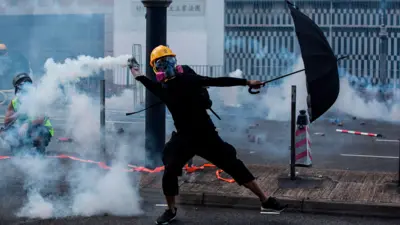We've updated our Privacy and Cookies Policy
We've made some important changes to our Privacy and Cookies Policy and we want you to know what this means for you and your data.
Rajiv Gandhi murder: Court commutes execution of plotters
Image source, AFP
India's Supreme Court has commuted the death sentences of three men convicted of plotting the 1991 assassination of former prime minister Rajiv Gandhi.
Chief Justice P Sathasivam spared the men, citing delays in deciding their mercy plea.
Murugan, Santhan and Perarivalan were members of the Tamil Tiger rebels who were defeated by Sri Lanka in 2009.
Gandhi's murder was seen as retaliation for his having sent Indian peacekeepers to Sri Lanka in 1987.
In 2006, the Tigers expressed "regret" for the murder which had shocked India.
The three convicts have been in jail for more than 20 years.
On Tuesday morning, the Supreme Court bench, headed by Chief Justice P Sathasivam, said the long time taken by the government to decide the mercy pleas - 11 years - was the ground for commuting the death sentences.
"We are confident that the mercy plea can be decided much faster than what is being done now," Justice Sathasivam was quoted as saying by the Press Trust of India news agency.
"We implore the government to render advice in a reasonable amount of time for taking a decision on mercy pleas," he added.
'Mental anguish'
"The Supreme Court said it is inhuman to keep somebody under the shadow of the noose for so long," the men's lawyer, Yug Mohit Chaudhry, told ґуПуґ«ГЅ Hindi.
"The death penalty cannot be executed after such a long delay and the government has not been able to explain the delay. The court said the prisoners have undergone unbearable torture and mental anguish during this period," he added.
The mother of one of the convicted men thanked the court for the ruling.
"I have been waiting for this judgement for a long time. For the past 23 years I have been struggling to get some peace," Arupathammal, mother of Perarivalan, told reporters.
Rights group Amnesty International India said Tuesday's ruling was "encouraging".
"India must now do away with the death penalty - a cruel, inconsistent and irreversible form of punishment that has no proven deterrent effect on crime," the group said in a statement.
Mr Gandhi was killed by a female suicide bomber as he addressed an election rally in the southern Indian town of Sriperumbudur in May 1991.
The three men and Nalini Sriharan, an Indian Tamil woman who was also convicted, were given the death penalty by the trial court in January 1998. The Supreme Court confirmed the death sentences of the men on 11 May 1999, but commuted the capital punishment to life imprisonment for Nalini.
Last month, the Supreme Court commuted the sentences of 15 death row prisoners to life in jail on the grounds of delay.
Executions are rarely carried out in India, but in the last two years there have been two hangings in India.
Mohammed Ajmal Qasab, the sole surviving attacker from the 2008 Mumbai attacks, was executed in November 2012 in a prison in the western city of Pune.
And in February 2013, a Kashmiri man, Afzal Guru, was hanged in Delhi's Tihar jail for the 2001 attack on India's parliament.
Top Stories
More to explore
Most read
Content is not available







